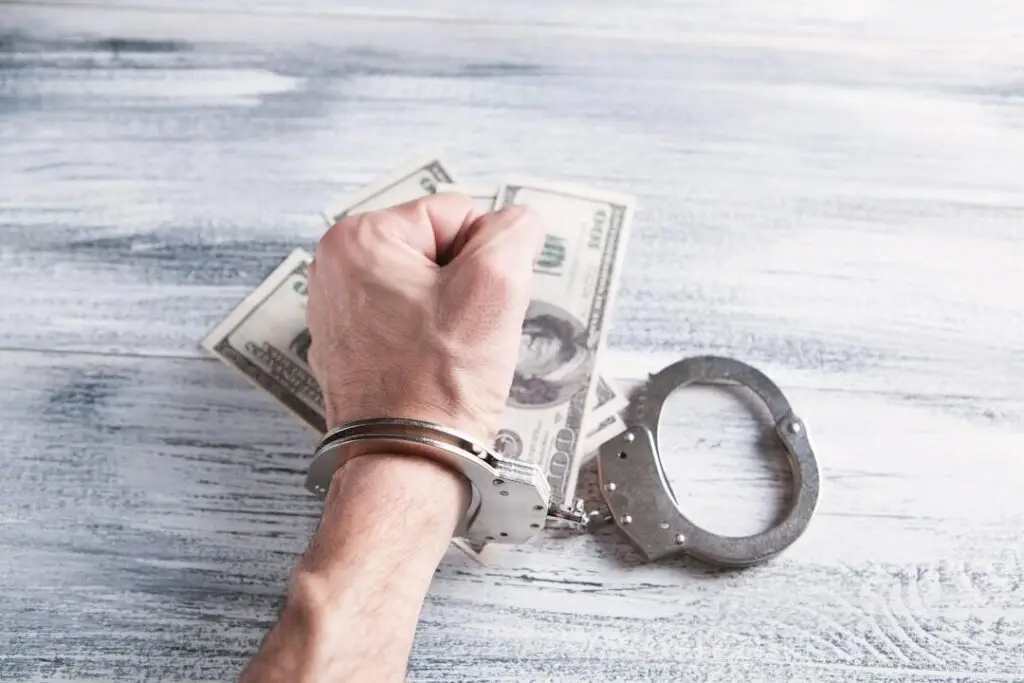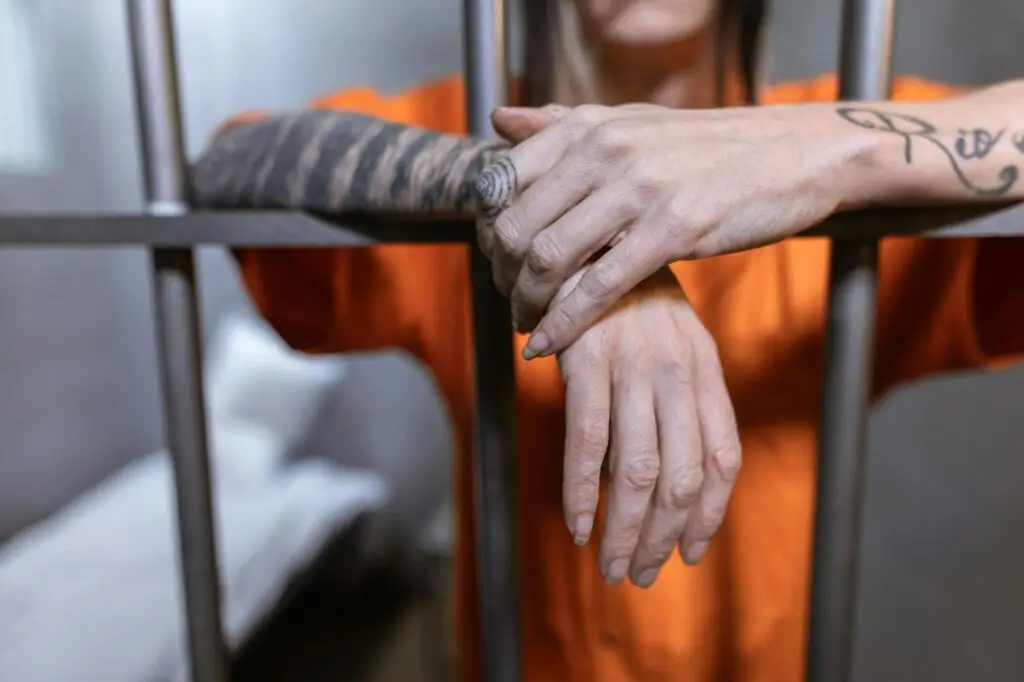A felony drug charge is a serious offense with severe penalties. When facing it, you might ask yourself, ‘How much is bail for a felony drug charge?’
According to the Prison Policy Initiative, the median bail for a felony is over $10,000. Raising that money can be difficult for most people. Fortunately, you usually don’t have to pay the full amount yourself.
Bail can also be lower than $10,000, as several factors influence the final number. Understanding these factors helps you and your family prepare. Read on to learn about felony drug charge bail in the Orlando area and key considerations.
What Is a Felony Drug Charge in Florida?
A felony drug charge in Florida involves:
- Possession of controlled substances
- Sale of illegal drugs
- Trafficking large quantities
- Manufacturing or producing controlled substances
- Distribution with intent to sell
- Importing drugs into the state
The seriousness of the charge depends on the type and quantity of drugs. Simple possession of small amounts can sometimes be charged as a misdemeanor. Larger quantities or intent to distribute often lead to felony charges with harsher penalties.
Convictions for felony drug charges can result in years of prison, hefty fines, and lasting consequences. Because of these risks, felony drug charge bail is often set high to discourage flight and ensure court appearances.
Can You Get Probation for a Felony Drug Charge in Florida?
In some cases, probation is an option for felony drug charges in Florida. Courts may allow probation when the offense involves smaller amounts and no violence is involved. Probation can include strict conditions such as:
- Random drug testing
- Counseling or treatment programs
- Community service
- Regular check-ins with a probation officer
- Employment or education requirements
Judges often weigh factors like age, prior record, and willingness to seek treatment. Not all felony drug defendants qualify, especially those charged with trafficking.
If probation is available, it can help avoid long jail time and reduce overall penalties. Drug charge bail amounts also matter since posting bail allows you to fight charges while free.
Do First-Time Felony Offenders Go to Jail in Florida?
Many first-time felony offenders in Florida worry about serving jail time. The outcome depends on the severity of the crime and the surrounding facts. Some first-time offenders face prison sentences if caught with large quantities or distribution intent.
Others may qualify for diversion programs or probation, avoiding long prison terms. Judges often consider whether the defendant poses a threat to public safety. Community service, drug counseling, and monitoring may replace incarceration for low-risk offenders.
Still, even first-time felony cases involve serious risks, so strong legal representation is essential. Understanding bail processes early also helps first-time offenders prepare effectively.
Can You Get a Felony Drug Charge Expunged in Florida?
Expungement erases criminal records from public view; however, Florida has strict rules governing eligibility. In general, felony drug charges that end in conviction cannot be expunged. Only dismissed charges, dropped cases, or acquittals may qualify for expungement.
Even then, the process requires petitions, background checks, and court approval. Having a charge sealed or expunged can help mitigate the long-term consequences of a felony arrest.
Employers, landlords, and schools may not see an expunged record, which provides a second chance. A felony bail cost guide can help you understand financial obligations before worrying about long-term record consequences.
Key Considerations That Influence Bail for Felony Drug Charges in Orlando
In many instances, two people facing a felony drug charge in Florida can have very different bail amounts. One might need to pay a considerable sum, while the other could pay much less. Understanding the factors that cause these differences can help you estimate the bail you might need to post for the felony drug charge you’re facing.
Severity of the Drug Charge
The seriousness of the charge is the main factor affecting bail in Orlando. Simple possession of a small amount often results in lower bail. Charges involving distribution, trafficking, or manufacturing usually lead to much higher amounts.
Judges consider whether the drugs were for personal use or to sell. Larger-scale offenses that affect more people often increase bail significantly.
Courts also look at the potential harm to the community. Strong bail strategies for drugs often start by focusing on the severity of the charge and presenting supporting evidence.
Criminal History
Prior arrests or convictions typically result in a higher bail amount being set by a judge. Judges see repeat offenders as higher risks for reoffending or skipping court. Having a clean record can help lower bail, especially for minor possession charges.
Courts carefully balance a person’s past behavior with the new charge. They consider the seriousness of prior offenses and how long ago they occurred. Judges also weigh whether the defendant has shown responsibility since the last arrest.
Strong legal arguments can highlight positive changes to reduce bail. A fair bail aims to ensure court appearances while considering risk.
Flight Risk
Judges carefully assess whether a defendant is likely to flee before trial. Evidence of missed court appearances or prior bail jumping can significantly increase the bail amount. Strong ties to the local area often lower concerns about fleeing.
Courts consider several personal factors, including:
- Travel records
- Job stability
- Housing situation
- Family connections
- Community involvement
- Educational commitments
Each of these factors helps the judge evaluate flight risk. The more stable and connected a defendant is, the more likely bail will be set lower. Presenting evidence of these ties can improve chances for reasonable bail.
Public Safety Concerns
Charges involving large-scale trafficking or violent activity often result in higher bail. Judges aim to protect the community from further harm while the case is pending.
Lower-level offenses with no violence risk usually lead to smaller bail amounts. Cash bail is sometimes required to ensure the defendant appears in court. Judges also review the:
- Nature of the offense
- Potential impact on neighbors
- History of dangerous behavior
- Threat to public safety
- Involvement in organized crime
- Use of weapons during the offense
Each of these factors helps the court decide an appropriate bail amount. A higher risk usually leads to a higher bail.
Showing stability and low risk can reduce the amount. Courts consider both public safety and fairness when setting bail.
Strength of Evidence
The stronger the evidence against you, the higher the bail often becomes. Judges may think defendants facing likely convictions have a greater chance of fleeing.
Weak or insufficient evidence can give attorneys a strong reason to request lower bail or pretrial release. Early review of evidence is crucial for preparing a solid bail request.
Attorneys who highlight weaknesses can persuade the court to reduce bail. Understanding the case early also allows for better planning and strategy before the hearing.
Financial Resources
Judges sometimes set bail based on a defendant’s ability to pay. Wealthy individuals may face higher bail to ensure accountability. Defendants with fewer resources often request lower bail to match their financial means.
Courts aim to balance fairness with securing court appearances. So even if you have the money, using a bail bond service like Bail 2 GO can help.
A Bail Bondsman pays a portion of your bail for you, usually around 10%, allowing you to stay out of jail. You then repay the Bondsman under agreed terms, making the process more affordable and manageable.
Community Ties
Judges often consider a defendant’s ties to the community when setting bail. Strong connections can lower bail because they reduce flight risk. Important factors include:
- Strong family connections
- Steady employment
- Years of local residence
- Participation in community activities
- Enrollment in school or training programs
- Volunteer work
Defendants with strong ties are seen as more likely to attend court. Letters from employers, teachers, or family members can help support this.
Weak or limited connections often lead to higher bail amounts. Demonstrating stability and community involvement can significantly impact the bail decision.
Mandatory Minimum Sentences
Florida law sets mandatory minimum sentences for many drug felony convictions. Judges often assign higher bail when a conviction could mean years in prison. Harsher sentencing laws make defendants more likely to consider skipping court, which raises bail amounts.
Understanding the potential penalties helps you and your attorney estimate the bail more accurately. Judges also consider the length of the minimum sentence and the severity of the crime.
Preparing legal arguments that address these concerns can help reduce the bail amount. Knowing mandatory minimums early allows better planning and strategy before the hearing.
Frequently Asked Questions (FAQs)
What Is the Minimum Sentence for a Felony in Florida?
The minimum sentence for a felony in Florida depends on the level of the felony. First-degree felonies may carry 5 years minimum, second-degree 2 years, and third-degree up to 1 year.
Certain drug felonies have mandatory minimums. Judges consider prior records, offense severity, and mandatory laws when determining exact sentences.
What Is the 3 Felony Rule in Florida?
Florida’s “3 strikes” law imposes harsher penalties for repeat offenders. If someone is convicted of three separate felonies, they may face life sentences or stricter mandatory penalties.
The rule targets habitual criminals and increases bail, prison time, and fines. Judges consider past felonies alongside current charges to apply the law correctly.
What Is a Habitual Drug Offender in Florida?
A habitual drug offender has multiple prior convictions for drug crimes. Florida law increases penalties for such offenders, including longer mandatory minimum sentences.
Courts see habitual offenders as higher risks for reoffending and flight. Bail amounts often rise to reflect this increased risk, ensuring the defendant appears in court.
Can Bail Be Modified After It Is Set?
Yes, bail can be modified after it is set. A defendant or attorney can request a reduction or increase based on new evidence, changes in risk, or personal circumstances.
Judges review flight risk, public safety, and financial ability before approving modifications. Timely requests and strong legal arguments increase the chances of adjustment.
Does Having a Strong Attorney Help Lower Bail?
A skilled attorney can significantly impact bail decisions. They can present evidence of community ties, stable employment, and low flight risk. Attorneys can also argue weaknesses in the charges or highlight the client’s status as a first-time offender.
How Does the Type or Amount of Drug Affect Bail?
Bail depends heavily on the type and quantity of the drug involved. Small amounts of marijuana may result in lower bail, while large quantities of cocaine, heroin, or meth increase bail. Judges also consider intent to distribute or trafficking, which can significantly increase the bail amount.
How Long Does It Take to Post Bail for a Felony Drug Charge?
Posting bail can take anywhere from a few hours to several days, depending on the court and the method used. Cash bail is immediate, whereas bail bonds may require additional paperwork.
Courts must process payments and verify conditions. Timing also depends on the defendant’s schedule, the attorney’s availability, and the efficiency of bond service.
Can Bail Be Paid in Installments for Felony Drug Charges?
Some courts allow payment plans or installment options, but this depends on local rules. Bail bondsmen often offer financing, allowing you to pay the full bail upfront while repaying a percentage over time.
Courts typically require proof of income or the ability to pay. Ask your attorney or bond service for available options.
Can Family or Friends Post Bail on My Behalf?
Yes, family or friends can post bail on your behalf. They can pay cash, post property, or work with a bail bondsman.
Courts often require identification, proof of relationship, and financial responsibility. Using someone you trust can expedite the process and alleviate financial stress.
How Much Is Bail for a Felony Drug Charge? Know the Factors That Affect
How much is bail for a felony drug charge? The bail amount is determined by factors such as the severity of the charge, the individual’s criminal history, and their community ties. Knowing these details allows you to plan financially and legally.
However, raising bail money can be challenging for many families. At Bail 2 GO, we can help. We have been operating in Orlando for over 12 years, guiding clients through the bail process with efficient results.
Our team provides expert support and flexible payment options. Get in touch to secure a quick release and navigate the bail process with confidence.




